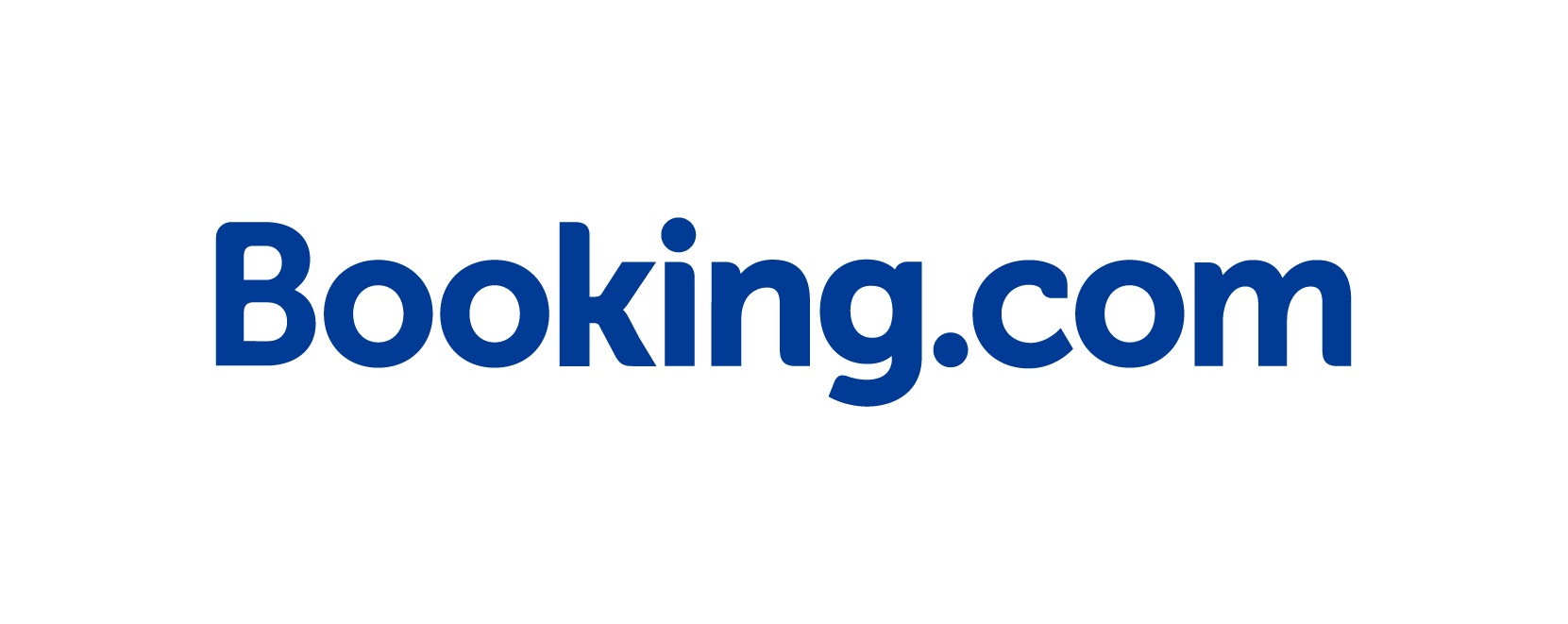
15,000 Hotels Unite Against Booking.com in Europe's Largest Hospitality Lawsuit
Europe's Hotel Rebellion: The $3 Billion Reckoning Coming for Booking.com
The continent's hospitality sector unites in unprecedented legal challenge as regulatory walls close around platform giant
AMSTERDAM — With less than 24 hours remaining before the registration deadline, over 15,000 hotels across Europe have joined what may become the largest collective action in the continent's hospitality history—a coordinated legal assault on Booking.com's two-decade dominance built on contested pricing restrictions.
The numbers tell a story of unprecedented industry unity: from Iceland's boutique guesthouses to Italy's family-run pensiones, hotels representing billions in annual revenue have registered at mybookingclaim.com, betting their collective legal action can extract meaningful compensation for what they describe as systematic suppression of competitive pricing.
Friday's registration deadline marks not just a procedural milestone, but the crystallization of years of simmering resentment over "parity clauses"—contractual provisions that prevented hotels from offering lower rates on their own websites or through competing platforms. The European Court of Justice's September 2024 ruling that such clauses violated competition law transformed industry frustration into legal opportunity.

When Contracts Became Chains
The dispute centers on seemingly technical contract language that carried profound economic consequences. For nearly two decades, Booking.com's parity clauses prevented participating hotels from undercutting the platform's rates elsewhere—effectively ensuring the Dutch giant's prices remained competitive without having to compete on commission rates.
Industry analysts describe the mechanics as elegant in their simplicity: hotels could set their rack rates, but couldn't offer direct customers or other platforms a better deal. This "rate parity" became standard across the sector, with violating hotels facing reduced visibility in search rankings or contract termination.
"The business model was bulletproof," observed one competition economist familiar with platform dynamics. "Booking eliminated price competition without technically fixing prices—hotels were free to charge whatever they wanted, as long as they charged it everywhere."
The arrangement's economic logic was compelling for Booking.com, which could maintain its commission rates while guaranteeing customers they wouldn't find better deals elsewhere. For hotels, particularly smaller properties dependent on platform visibility, compliance became effectively mandatory.
The Regulatory Avalanche
Three regulatory developments converged to transform this long-simmering tension into active litigation. The European Court of Justice's September 19, 2024 ruling in Case C-264/23 demolished Booking.com's primary legal defense by declaring parity clauses were not "ancillary" to platform operations and could significantly restrict competition.
Simultaneously, the EU's Digital Markets Act designated Booking.com as a "gatekeeper" in May 2024, explicitly prohibiting parity clauses and any "measures with equivalent effect." By July 2024, Booking.com had removed parity requirements from European contracts, but the legal foundation for historical damages claims was already established.
The third element was organizational: HOTREC, representing European hotel associations, partnered with the Dutch Stichting Hotel Claims Alliance to create a streamlined legal vehicle capable of aggregating claims across 27 jurisdictions under Netherlands collective action procedures.
"The regulatory stars aligned in a way that rarely happens," noted a Brussels-based competition lawyer tracking the case. "You had legal precedent, prospective prohibition, and a practical litigation mechanism all coming together."
The Economics of Collective Action
Participation patterns reveal the breadth of platform dependency across European hospitality. While absolute numbers are highest in Germany, Italy, and the Netherlands—reflecting market size—relative participation rates tell a different story. Iceland, Liechtenstein, and Luxembourg show the strongest uptake proportional to their hotel sectors, suggesting smaller markets felt parity constraints most acutely.
The geographic distribution also reflects varying national enforcement histories. Countries with earlier parity restrictions, like Germany and France, show strong participation, while markets where Booking.com faced fewer regulatory challenges demonstrate more mixed uptake.
Financial stakes vary dramatically by hotel type and market position. Large hotel chains with substantial direct booking capabilities likely suffered greater losses from suppressed direct sales, while smaller properties may focus more on commission inflation claims. Industry observers estimate potential damages could range from hundreds of millions to several billion euros, depending on how courts calculate historical overcharges.
Platform Power Under Pressure
The lawsuit arrives as Booking.com navigates a fundamentally altered European regulatory landscape. Digital Markets Act compliance requires the platform to avoid not just explicit parity clauses, but any "measures with equivalent effect"—a broad prohibition that constrains ranking algorithms, commission structures, and promotional policies.
This regulatory tightening occurs against a backdrop of evolving distribution economics. Hotels increasingly recognize direct bookings' superior profitability—avoiding commission payments while capturing valuable customer data. The removal of parity restrictions has already enabled more aggressive direct channel pricing, with some hotels reporting meaningful shifts in booking patterns.
For Booking.com, the challenge extends beyond damages liability to fundamental business model adaptation. The platform's historic ability to guarantee competitive pricing through contractual restrictions is permanently compromised in Europe, forcing greater reliance on convenience, inventory breadth, and consumer loyalty.
Investment Implications and Market Dynamics
From an investment perspective, the litigation represents a manageable but meaningful overhang for Booking Holdings. Base case scenarios suggest aggregate damages of $600 million to $1.8 billion spread over several years—material but not existential for a company with $23.7 billion in 2024 revenue.
More significant may be the structural implications. Revenue per gross booking, a key profitability metric, faces pressure as European hotels exploit pricing freedom. Booking.com's 14.3% revenue-to-gross-bookings ratio in 2024 may compress as competitive dynamics intensify, though management has tools to offset through payments processing, advertising revenues, and ancillary services.
The regulatory precedent also creates spillover risks. Other jurisdictions may adopt similar restrictions, while additional platforms could face comparable challenges if designated as gatekeepers under expanding digital regulation.
The Road to Amsterdam
Legal proceedings will unfold slowly under Netherlands collective action procedures. Case organizers plan to file in Amsterdam before year-end 2025, but admissibility challenges alone could extend into 2027 before any substantive proceedings begin. The complexity of proving damages across diverse markets and time periods favors eventual settlement over protracted litigation.
Early settlement discussions may focus on partial resolutions—addressing specific countries or claim categories to limit broader exposure. Booking.com's compliance with current regulations should insulate against the most aggressive future damages theories, but historical conduct remains exposed to judicial scrutiny.
Beyond Booking: Platform Power's New Boundaries
The European hotel rebellion against Booking.com signals broader tensions over platform power in digital economies. The combination of collective legal action, regulatory intervention, and coordinated industry resistance creates a template potentially applicable across sectors where dominant platforms control market access.
For European hospitality, Friday's registration deadline represents more than litigation logistics—it marks a potential inflection point in the industry's relationship with digital intermediaries. Whether that translates to meaningful economic rebalancing will depend on Amsterdam's courts, but the precedent of coordinated resistance is already established.
As hotels await Friday's final tallies, the message to platform giants appears clear: contractual creativity cannot indefinitely substitute for competitive markets, and regulatory patience has limits when market power becomes market control.
The registration deadline for hotel participation in the Booking.com class action is Friday, August 29, 2025. Case filings are expected in Amsterdam District Court before year-end 2025.
House Investment Thesis
| Aspect | Summary |
|---|---|
| Overall Assessment | A manageable, multi-year legal/operating headwind for Booking Holdings (BKNG), not an existential threat. Probable cash outflow of $0.6–1.8B (base case), with a fat-tail risk of $3–5B. |
| Core Legal Situation | CJEU ruling (Sep 2024) killed the "ancillary restraint" defense but did NOT declare parity clauses per se illegal. The battleground shifts to proving harm and quantifying damages. |
| Operational Impact | Parity already removed in EEA due to DMA. Structural impact is take-rate/ROI pressure (tens of bps) in EMEA, not collapse. BKNG's scale ($165.6B GB, 14.3% Rev/GB) provides levers to cushion margins. |
| Root Causes | 1. Two-sided platform economics: Parity clauses chilled competition. 2. Litigation infrastructure: Netherlands' WAMCA law enables EU-wide mass claims. 3. Catalyst rulings: CJEU decision & DMA designation weakened BKNG's legal position. |
| Key New Developments | • Scale: >15,000 hotels registered; claim period 2004-2024. • Legal: Econometrics (commission inflation + suppressed direct sales) is now the crux. • Regulatory: DMA bans parity and any "equivalent effect" measures, with fines of 10-20% global turnover. |
| Bull Case (Pros for BKNG) | • Scale, payments/merchant mix (59%), and ad products can offset pressure. • Legal complexity favors discounted settlements. • Incremental pain from parity removal has been digestible. |
| Bear Case (Cons for BKNG) | • Strong, organized claimants (HOTREC) create adverse narrative. • Damages models could snowball with long look-backs. • DMA anti-circumvention clause risks huge fines for any "parity-by-proxy." |
| Scenario Sizing | • Base: $0.6–1.8B over 3-5 years. • Bear: $3–5B + 30-70 bps shaved off EMEA monetization. • Bull: <$500M aggregate. (Anchored to plaintiff's ~30% of commissions claim but heavily haircut). |
| Sharp Insights | • HOTREC's spin on the CJEU ruling is stronger than the legal reality. • Biggest risk is future "parity-by-proxy" triggering DMA fines, not historic damages. • Internal discovery will be ugly. |
| Sector Implications | • Hotels: Direct channels to gain 200-400 bps share. • Rival OTAs/Metas: Near-term GMV share tailwind in Europe. • B2B Hotel Tech: Tailwind as hotels invest in direct channel weaponization. |
| Predictions (12-36mo) | 1. Filing YE25; admissibility fight in 2026. 2. Pilot settlement of $0.6–1.8B in 2026-27. 3. EC issues DMA guidance on "parity-by-proxy." 4. EMEA take-rate pressure offset by other levers; consolidated margin impact minimal. 5. Direct channel share in Europe grinds up permanently. |
| Diligence Checklist | • Modelling assumptions for damages reserves? • Specific safeguards for DMA Article 5/13 compliance? • KPIs for payments/ads offsetting monetization drift? • Settlement frameworks being considered? |
NOT INVESTMENT ADVICE